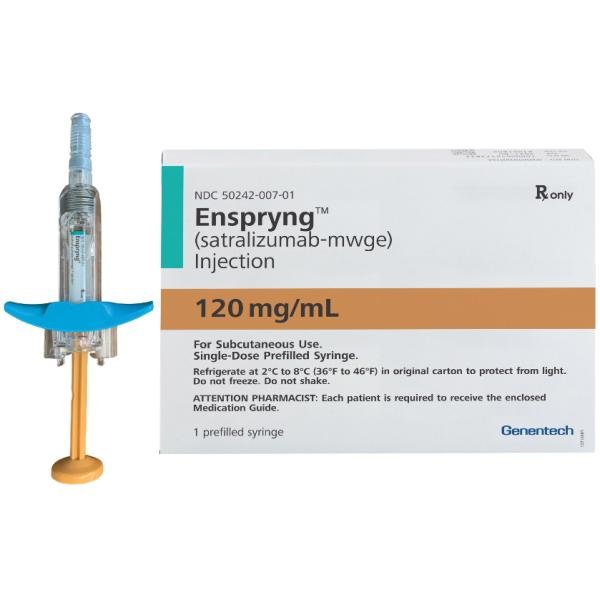Satralizumab Disease Interactions
There are 3 disease interactions with satralizumab.
Satralizumab (applies to satralizumab) active hepatitis B
Major Potential Hazard, Moderate plausibility. Applicable conditions: Infectious Hepatitis
Satralizumab is contraindicated in patients with active hepatitis B infection. All patients should be screened for hepatitis B before treatment initiation.
Satralizumab (applies to satralizumab) tuberculosis
Major Potential Hazard, Moderate plausibility. Applicable conditions: Tuberculosis -- Active, Tuberculosis -- Latent
Satralizumab is contraindicated in patients with active or untreated latent tuberculosis. All patients should be screened for tuberculosis before treatment initiation and monitored for the development of symptoms or signs of tuberculosis during treatment, even if the initial testing is negative.
Satralizumab (applies to satralizumab) infections
Moderate Potential Hazard, Moderate plausibility. Applicable conditions: Infection - Bacterial/Fungal/Protozoal/Viral
Treatment with satralizumab can increase the risk of serious infections. Treatment should be delayed until any active infection is treated and resolved.
Switch to professional interaction data
Satralizumab drug interactions
There are 358 drug interactions with satralizumab.
More about satralizumab
- satralizumab consumer information
- Check interactions
- Compare alternatives
- Side effects
- Dosage information
- During pregnancy
- Drug class: interleukin inhibitors
- Breastfeeding
- En español
Related treatment guides
Drug Interaction Classification
| Highly clinically significant. Avoid combinations; the risk of the interaction outweighs the benefit. | |
| Moderately clinically significant. Usually avoid combinations; use it only under special circumstances. | |
| Minimally clinically significant. Minimize risk; assess risk and consider an alternative drug, take steps to circumvent the interaction risk and/or institute a monitoring plan. | |
| No interaction information available. |
See also:
Further information
Always consult your healthcare provider to ensure the information displayed on this page applies to your personal circumstances.


